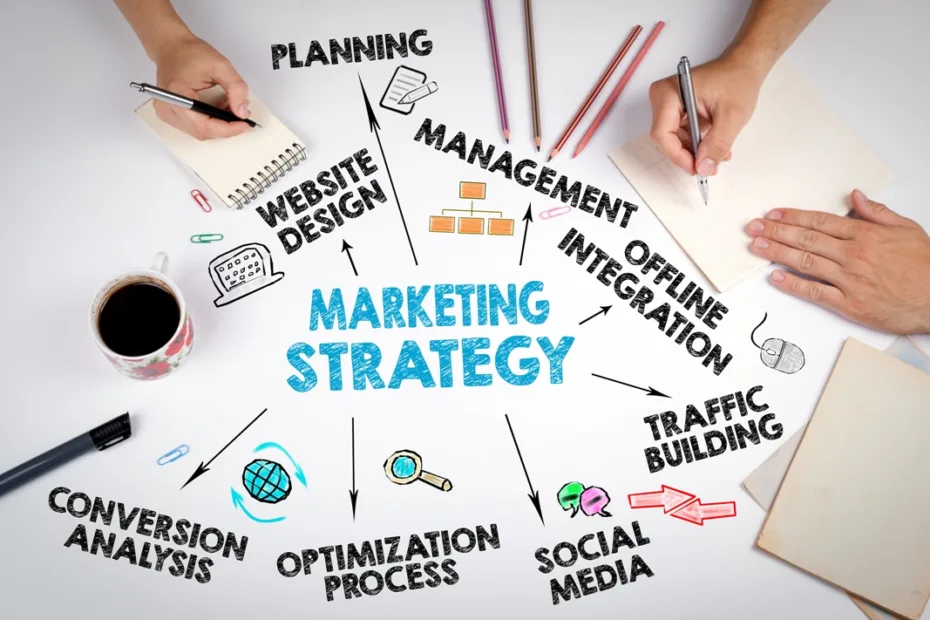Strategic marketing is the backbone of any successful business. It’s the art and science of using data, creativity, and customer insights to create value for your target market. Whether you’re a seasoned marketer or a business owner looking to enhance your marketing efforts, this guide will walk you through everything you need to know about strategic marketing.
Understanding Strategic Marketing
Firstly, let’s clarify what strategic marketing actually is. Strategic marketing is a long-term, forward-thinking approach to planning with the fundamental goal of achieving a sustainable competitive advantage. This means it’s not about quick wins or short-term gains but rather about building a strong foundation for continuous growth and success.
Feel free to inquire about Strategic Marketing for your business with Niels
Importance of Strategic Marketing
Why is strategic marketing so important? It helps businesses understand their market, competitors, and customers. By doing so, companies can create more effective marketing strategies that resonate with their target audience. Consequently, businesses can improve their market position, enhance customer loyalty, and increase profitability.
Setting Clear Marketing Objectives
Before diving into the tactics, it’s essential to set clear marketing objectives. These objectives should be specific, measurable, achievable, relevant, and time-bound (SMART). For instance, instead of saying, “We want more customers,” a SMART objective would be, “We aim to increase our customer base by 20% in the next six months.”
Conducting Market Research
Next, market research is a critical component of strategic marketing. Additionally, by understanding the market landscape, businesses can identify opportunities and threats. Moreover, market research involves gathering data about your industry, competitors, and target audience. This can be done through surveys, interviews, focus groups, and analyzing industry reports.
Identifying Your Target Audience
Knowing your target audience is crucial. This involves creating detailed buyer personas that represent your ideal customers. These personas should include demographic information, interests, pain points, and buying behaviors. By understanding who your customers are, you can tailor your marketing messages to meet their specific needs.
Analyzing Competitors
Knowing your target audience is crucial. Furthermore, this involves creating detailed buyer personas that represent your ideal customers. These personas should include demographic information, interests, pain points, and buying behaviors. Additionally, by understanding who your customers are, you can tailor your marketing messages to meet their specific needs.
Developing a Unique Value Proposition
Your unique value proposition (UVP) is what sets you apart from your competitors. It’s the reason why customers should choose your product or service over others. Your UVP should be clear, compelling, and communicate the unique benefits you offer. This becomes the cornerstone of all your marketing efforts.
Crafting a Strategic Marketing Plan
Once you have all the necessary insights, it’s time to craft your strategic marketing plan. This plan should outline your marketing goals, target audience, UVP, and the strategies you will use to achieve your objectives. It should also include a timeline, budget, and metrics for measuring success.
Leveraging Digital Marketing
In today’s digital age, leveraging digital marketing is non-negotiable. Digital marketing includes a variety of tactics such as search engine optimization (SEO), content marketing, social media marketing, email marketing, and pay-per-click (PPC) advertising. These strategies help you reach a wider audience, engage with customers, and drive conversions.
Content Marketing Strategy
Content marketing is all about creating and sharing valuable content to attract and engage your target audience. This could be in the form of blog posts, videos, infographics, or social media posts. A well-executed content marketing strategy helps build trust, establish authority, and drive organic traffic to your website.
Social Media Marketing
Social media marketing involves using platforms like Facebook, Instagram, Twitter, and LinkedIn to promote your brand and connect with your audience. It’s important to choose the right platforms based on where your target audience spends their time. Social media marketing can help increase brand awareness, drive website traffic, and generate leads.
Email Marketing
Moreover, email marketing remains one of the most effective ways to communicate with your audience. By sending personalized and relevant emails, you can nurture leads, build relationships, and encourage repeat business. It’s essential to segment your email list and tailor your messages to different audience segments.
Pay-Per-Click Advertising
Pay-per-click (PPC) advertising allows you to place ads on search engines and other platforms, paying only when someone clicks on your ad. This can be a highly effective way to drive targeted traffic to your website. However, it’s crucial to have a well-optimized landing page and compelling ad copy to maximize conversions.
Measuring and Analyzing Results
Additionally, measuring and analyzing your marketing efforts is vital. This involves tracking key performance indicators (KPIs) such as website traffic, conversion rates, and return on investment (ROI). Tools like Google Analytics, social media insights, and email marketing reports can provide valuable data to help you refine your strategies.
Adapting and Evolving Your Strategy
Finally, the world of marketing is constantly evolving, and so should your strategy. It’s important to stay updated with the latest trends and technologies. Be prepared to adapt your strategy based on what’s working and what’s not. Continuous learning and improvement are key to long-term success.
To bring everything together, strategic marketing is a comprehensive approach that involves understanding your market, setting clear objectives, and leveraging various marketing tactics to achieve your goals. By following this epic ultimate guide, you can create a robust strategic marketing plan that drives growth and success for your business. Remember, the key to successful marketing lies in understanding your audience, delivering value, and continuously evolving with the market trends.
People Also Asked
What are the key components of Strategic Marketing?
Key components of strategic marketing include market research, target audience identification, competitive analysis, branding, positioning, marketing channels selection, messaging, and measurement of marketing effectiveness.

